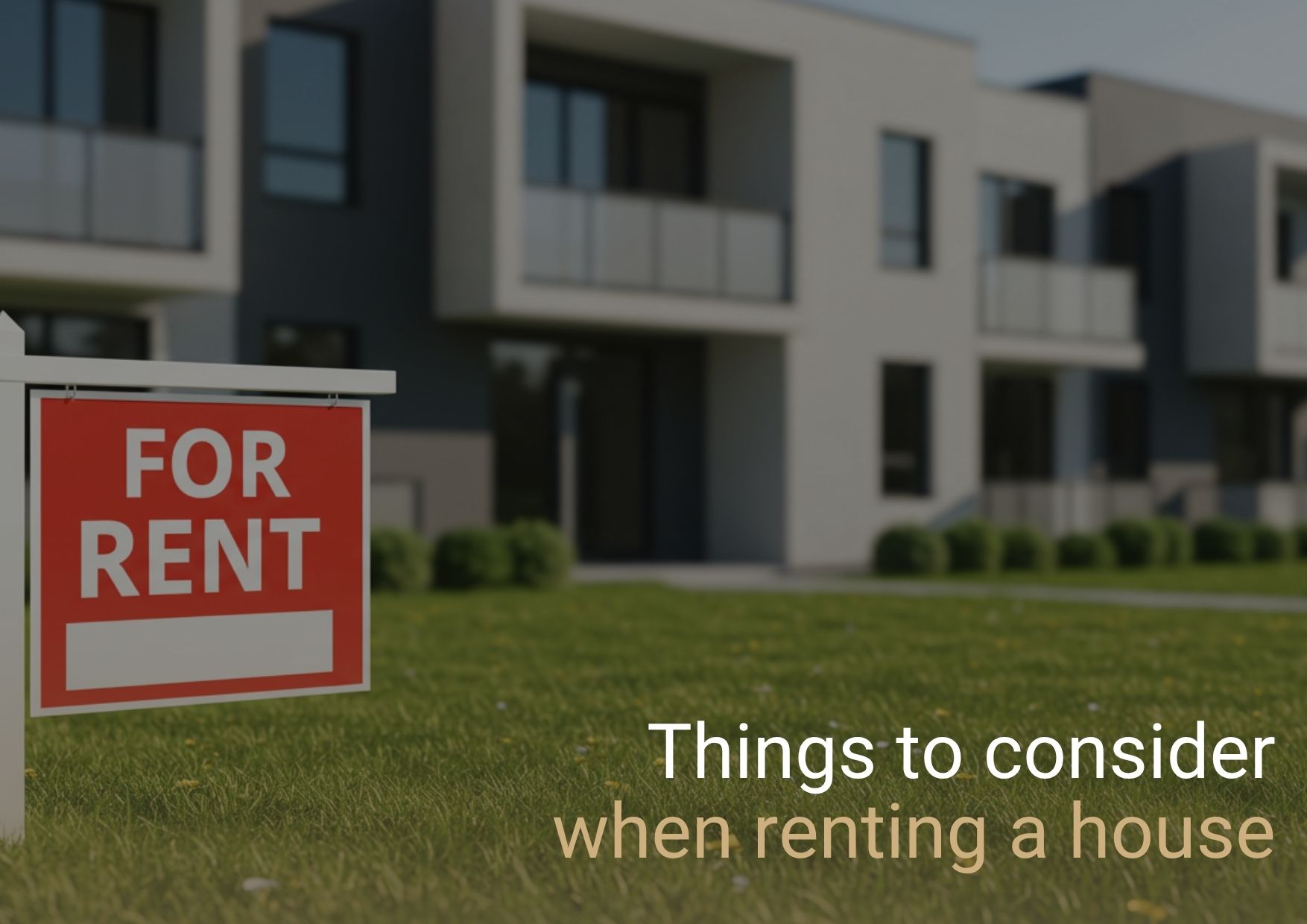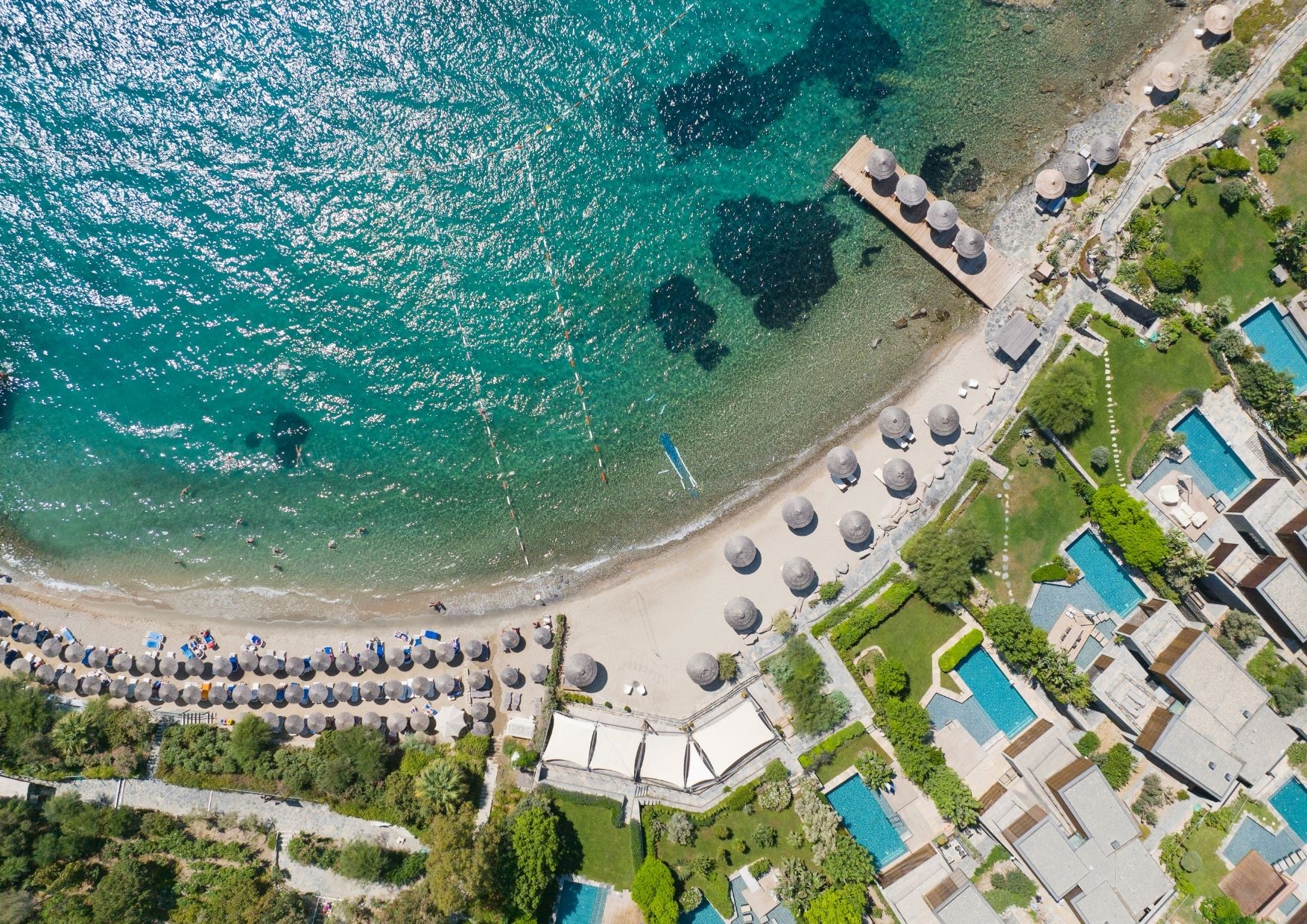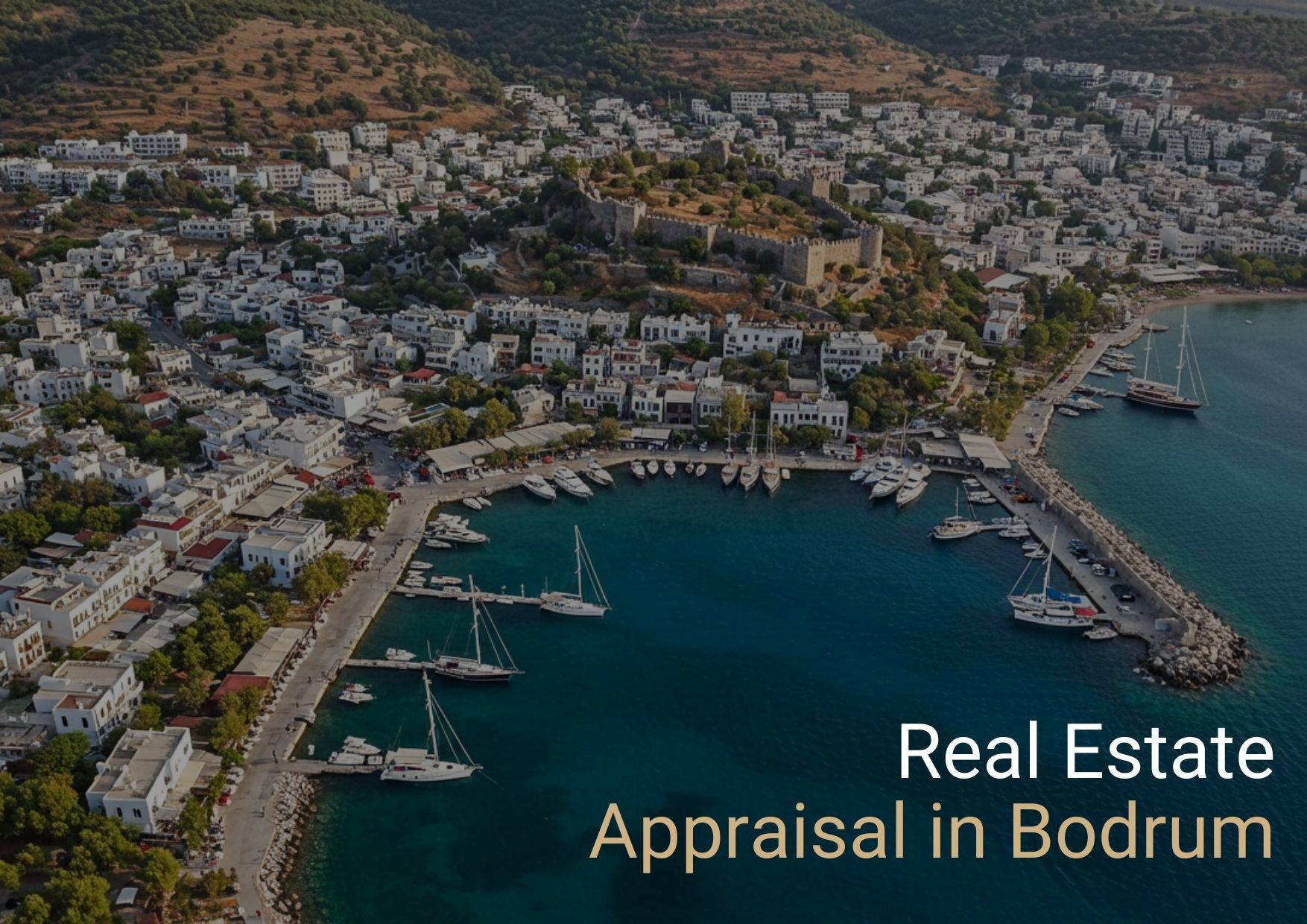Things to Consider When Renting a House
Tem 21 2025

The process of renting a home in Turkey can be seamless and profitable for both tenants and investors when the right steps are taken. In this guide, we cover key points, from the high prices of the Istanbul rental market to the Bodrum villa rental trend. From budget and location planning to lease details, deposit requirements , and the advantages of long-term rentals, we explain everything you need to know in natural and understandable language. Whether you're a tenant looking to rent a new home or an investor looking to generate rental income through real estate, our goal is to guide you through the process of renting a home in Turkey.
Getting Started with Renting: Budget and Location Planning

Clarifying your individual needs and budget is the first step in the home rental process. In addition to the rent, you should also consider additional expenses such as maintenance fees, electricity, water, and natural gas. First, consider your income and determine the maximum monthly rent you can afford. Then, begin researching the location: proximity to your work, your child's school, public transportation, and daily essentials play a critical role in choosing the right home.
Choosing a location, especially in major cities, directly impacts your budget. For example, rent prices in Istanbul have risen rapidly in recent years due to inflation and demand. According to Deutsche Bank's 2025 report, the average rent for a 3-bedroom apartment in the city center in Istanbul has increased from $602 to $1,764 (approximately 70,000 TL) in just five years, marking a global record high. Therefore, when planning to rent a home in Istanbul, it's important to keep your budget realistic and, if necessary, consider neighborhoods on the outskirts of the city. However, in resort areas like Bodrum , the situation is different; villa rentals are extremely popular during the summer months, and prices can skyrocket quickly. Consider all these factors and compile a list of properties that meet your criteria.
Home Rental Situation in Istanbul

Istanbul, Türkiye's largest city, is among the markets with the highest rental prices. As of the end of 2024, the average monthly rent across Istanbul reached 25,000 TL, many times higher than the minimum wage. Of course, rental prices vary significantly by neighborhood. Central districts like Beşiktaş, Sarıyer, and Kadıköy, home to luxury residences overlooking the Bosphorus, have the highest averages, while more affordable rental options can be found in outlying areas like Esenyurt and Sultangazi. Due to high inflation and high demand, Average rental prices in Istanbul Prices continue to rise significantly each year. In this case, entering into long-term lease agreements can be a useful strategy for tenants to avoid excessive price increases.
Istanbul is also an attractive rental market for investors. Owning a property in areas with high rental income potential can provide a steady, high income stream. Choosing the right location, especially in high-demand districts like Sarıyer or Kadıköy, will maximize your investment's long-term return. However, it's important to research the area's infrastructure projects, transportation options, and future development plans before investing, as these factors will affect your property's value and the speed at which it can be rented out.
Villa Rentals in Bodrum: A Popular Choice for Holidays

Bodrum, Türkiye's popular holiday destination, is particularly popular with villa rentals during the summer months. It's an attractive option for families and groups of friends who prefer detached villas with private pools and gardens over crowded hotels. Rental villas vary depending on location and features; seasonal daily rates generally range from 5,000 TL to 20,000 TL, though they can be much higher in upscale areas.
The biggest advantages of renting a villa are privacy, ample living space, and freedom. This can be both comfortable and economical for large groups. For short-term rentals, it's important to discuss details like bills and cleaning in advance.
For investors , Bodrum offers high income potential with seasonal rentals. However, off-season slowdowns should be taken into account and popular areas should be chosen.
Examine the Condition of the House and Building
Before booking the property you like, it's important to thoroughly examine the physical condition of both the apartment and the building it's located in. You can inspect the property using the following checklist:
- Dampness, humidity, and damage: Look for signs of dampness in the apartment, signs of dampness or water leaks on the walls, mold, and other issues. Try to find out if there's been any flooding in the past.
- Plumbing and appliances: Check that fixtures like the central heating system (combi boiler), air conditioner, stove, faucets, and electrical systems are in working order. If any appliances appear broken or poorly maintained, notify the landlord.
- Building and common areas: Observe the general maintenance of common areas, such as the building's exterior, elevators, stairwells, and parking lot. Ask the building attendant or manager about the dues and any upcoming renovations.
- Security measures: Check if the building has security cameras, door entry security systems, etc. It's important that the apartment you're renting has strong locks on the doors and secure windows and balconies.
- Deficiencies list: Before moving in, make a note of any deficiencies, malfunctions, and fixtures you identify. Include this list in your lease to protect both your rights and those of your landlord.
Lease Agreement and Legal Details

A written, detailed lease agreement is essential to avoid potential disputes in the future. Be sure to consider the following points when drafting the agreement:
- Write down the full address of the rented house and the identity information of the tenant and the landlord.
- The rental fee should be clarified both in numbers and in words; it should also be stated whether the payment will be made monthly or quarterly.
- annual rent increase rate in the contract. According to the Turkish Code of Obligations, increases in housing rents cannot exceed the 12-month CPI average, unless otherwise stated (a 25% increase limit was temporarily applied between 2022 and 2024).
- the deposit amount and refund terms in detail. For example: "The tenant has deposited two months' rent into the bank account specified by the landlord. If there is no damage to the house at the end of the contract, this amount will be refunded to the tenant in its entirety."
- Specify how the monthly rent will be paid. By law, rents of 500 TL or more must be paid via bank or postal service. Therefore, include the landlord's bank account information in the contract.
- Check whether the rented property has a Compulsory Earthquake Insurance (DASK) policy and, if so, you can note the policy number in the contract.
- Each page of the contract must be initialed and signed by both the tenant and the landlord. Each party should receive a copy of the signed contract.
Required Documents and Other Procedures
Various documents may be requested from the parties involved in renting a home. These documents are typically requested by both the tenant and the landlord:
The lists above may vary from case to case, but keep in mind that landlords are legally required to obtain a Tax Identification Number (TIN) and declare rental income annually in order to receive rental income.
It's in the best interest of both parties to determine who will pay this fee (tenant or landlord) upfront and clearly state it in the lease agreement .
Deposit, Payment and Tax
A security deposit (guarantee fee) is a security deposit taken in advance to protect the landlord against potential damages and unpaid bills. According to the Turkish Code of Obligations, a deposit for residential leases can be a maximum of three months' rent. In practice, a deposit equivalent to one or two months' rent is generally required. It is strongly recommended that the deposit be deposited into a time deposit account opened in the tenant's name at a bank or post office. This ensures that the deposit will be returned if there are no damages at the end of the lease; the landlord cannot unilaterally withdraw the deposit. Be sure to clearly state the deposit amount, the deposit account information, and the terms and conditions for return in the lease.
Payment of rent on time and in full each month is crucial for a smooth tenant-owner relationship. In Turkey, rental income from residential properties is subject to income tax. If the tenant is a company or legal entity, they are obligated to withhold 20% of the gross rental amount and remit it to the government. For individual rentals, withholding tax is not applied; the landlord declares their rental income on an annual tax return and pays their own taxes. Therefore, specifying whether the lease agreement covers net or gross rental amounts and who is responsible for withholding will prevent future disputes.
Advantages of Long-Term Rental

Long-term rentals (12 months or longer) offer many advantages for both tenants and landlords. For tenants, long-term agreements provide stability and protection from frequent rent increases. According to legislation, rent increases are generally determined by the 12-month average CPI rate, and a 25% cap also provides protection for tenants. Furthermore, staying in the same home for an extended period means savings on moving costs, deposits, and commissions.
For landlords, working with a reliable tenant for a long term makes both rent payments and property maintenance more predictable. New, well-maintained buildings in central locations are easier to rent and offer higher returns.
Those considering a property for investment should consider both rental income and tax liabilities. Choosing the right tenant is crucial for maintaining the property's long-term value.
Frequently Asked Questions
- How much is a real estate agent's commission? A commission is typically 10% of the annual rent + VAT. This fee can be paid by either the tenant or the landlord, depending on the contract; it must be agreed upon upfront.
- What is the maximum deposit? Legally, a deposit for residential rentals can be up to three months' rent. It's recommended that the deposit be deposited into an interest-bearing account at a bank or post office and be included in the contract.
- Who pays the withholding tax? For residential rentals, if the tenant is a legal entity (e.g., a company), they are required to withhold 20% of the gross rent and pay it to the tax office. For individual rentals, no withholding tax is applied; the landlord reports rental income to the government on an annual tax return and pays the tax.
- Does the lease agreement have to be in writing? While not required, a written agreement is highly recommended. If the lease specifies key issues such as the property's address, rent, payment method, rent increase rate, and deposit, both the tenant and landlord's rights are protected.
- What should you pay attention to when taking over the house? Before moving in, check the overall cleanliness, check for paint or leaks on the walls, and check that all fixtures (appliances, faucets, electrical components, etc.) are in working order. If any issues are identified, documenting them with photos and noting them in the contract will prevent future disputes.
Latest Posts
- Investment Property
- Estate Turkey
- Investment Real Estate
- Investment Turkey
- Istanbul Villas
- Luxury Estate Turkey
- Penthouse Istanbul
- Property For Sale Istanbul
- Property Investment Turkey
- Property Istanbul
- Property Turkey
- Real Estate Istanbul
- Real Estate Istanbul Turkey
- Real Estate Turkey
- Real Estate Istanbul Turkey
- Seaside Istanbul
- Turkey Real Estate
- Turkish Estate
- Turkish Home
- CITY DESCRIPTIONS
- Latest News
- Miami Real Estate

 Real Estate Appraisal in Bodrum
Real Estate Appraisal in Bodrum
 Areas with High Rental Income in Istanbul
Areas with High Rental Income in Istanbul

